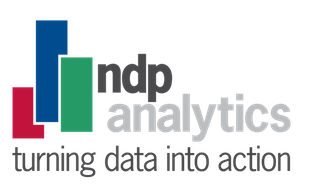Op-Ed | July 16, 2024
Joe Biden’s Latest Shiny Distraction
This article was posted on Townhall on July 16, 2024.
In an effort to distract attention from his failed policies on inflation, energy, and healthcare, President Joe Biden has tasked the Federal Trade Commission (FTC) to shine the light elsewhere. The FTC concocted a solution: ruling against so-called “junk fees” with an overreaching, economy-wide ban.
Yet as Ryan Bourne and Sophia Bagley write in a Cato Institute briefing paper, “Given that markets and intermediary institutions already have strong incentives to enforce pricing transparency, it is bizarre that junk fees have become a hot‐button political issue.” Indeed, market participants—fully aware that customer satisfaction and retention are essential—are already providing organic solutions to consumer unhappiness with these fees.
“In an effort to distract attention from his failed policies on inflation, energy, and healthcare, President Joe Biden has tasked the Federal Trade Commission (FTC) to shine the light elsewhere. The FTC concocted a solution: ruling against so-called “junk fees” with an overreaching, economy-wide ban.”
But with the FTC expected to vote on this strange rule this summer, what would it really do?
First, with this rule, the administration is lumping every provider of goods and services together—as if they were all perpetrators of the same junk fee crimes. The White House has boasted that the rule’s scope applies “to industries across the economy.” Biden is missing a key point: not all supposed junk fees are created equal. There are certainly bad junk fees, like when Ticketmaster has hidden filters buried within a tab, thus making it difficult for would-be concert goers to see an all-in price for their seats.
But many fees that the administration considers “junk” are transparent to each customer and go directly toward supporting essential business services. For example, when you order take-out dinner on a delivery app, service fees and fees for additional options like expedited delivery are readily apparent and understood.
This dichotomy lends itself well to the simple economics term value-added. This concept is used to measure the additional value provided by a goods or services provider. In other words, fees that account for an additional service requested by a consumer are not junk fees.
Next, banning junk fees won’t help consumers’ pocketbooks as Biden and the FTC contend. In fact, it will actually raise prices. This is because companies will be forced to expend significant resources complying with the rule’s onslaught of burdensome requirements. According to the U.S. Chamber of Commerce in a letter to the FTC, “The proposal would require companies to change and update their pricing practices, advertising, sign-up flows, user interfaces, and mandated notices,” as well as “test consumer understanding of disclosures to confirm adequacy of the clear and conspicuous nature of fee information.” All of these demands equate to substantial cost increases for businesses large and small, which will then be passed on to the consumer.
And it’s not just policy wonks inside the Beltway that know this. Michael LaMarca, owner and CEO of the Master Pizza Franchise Group in Ohio, stated, “If the FTC bans delivery fees, we will again be forced to raise our prices to absorb the cost of offering delivery to our customers.” Reinforcing the value-added theme I mentioned earlier, he went on to say, “Our customers that choose to have their food delivered are accustomed to paying a delivery fee and appreciate the service that we offer.”
Finally, in an ironic fashion typical of an overbearing government, the administration is attempting to dictate ‘junk fees for me, but not for thee.’ As the National Taxpayers Union Foundation uncovered, “The Proposed Regulation would exclude taxes and fees only if they are ‘imposed on consumers by a Federal, State, or local government agency, unit or department,’ and not any charge ‘that the government imposes on a business and the business chooses to pass on to consumers.’” NTU President Pete Sepp added, “This strange distinction would overturn most of the longstanding U.S. system that defines how a tax, penalty, or charge operates, versus who is obligated to remit or collect it.” How bizarre.
It’s an election year, and Biden’s chances of winning a second term are in jeopardy. The administration is using every distraction it can think of to deflect from its own record. The Department of Energy has been plundering the Strategic Petroleum Reserve to try to bring down gas prices. The Food and Drug Administration pulled its long-awaited menthol cigarette ban to curry favor with Black voters. They’re all gimmicks distracting from our nation’s best interests. The FTC’s ban on junk fees is just the same.
Hopefully the FTC can ultimately see past politics this time and focus their regulatory power squarely on bad actors who are defrauding their customers. Sweeping all companies under the same nationwide rug—as this rule currently proposes—will only dim our economy and consumer happiness.
